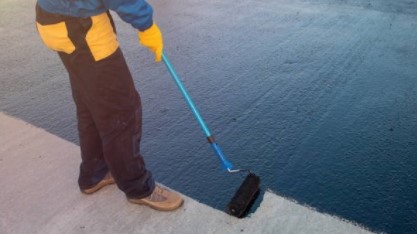Why Waterproofing Is Essential For Commercial Buildings
Not long ago, a building in the vibrant Jalan Besar neighbourhood worried people that it could collapse at any moment. When the issue was brought to the authorities’ attention, they found large cracks wriggling across the white paint on some pillars. After police complaints were made by concerned passers-by, the building is now undergoing further inspection by an engineering team. The situation kept many wondering, what may have been the cause?
No doubt, the lifespan and structural integrity of a commercial building rely heavily on a strong foundation and the cracks forming on the building were the result of poor maintenance. Unlike residentials homes, commercial properties demand more caution and care. That said, an important question to ask while maintaining a commercial building is: has the roof foundation been properly waterproofed?
Most buildings are waterproofed using cement because of its tensile strength. After all, a building cannot fully endure the constant pressure it receives, given the humid climate and frequent rainfall experienced in Singapore. Foundation problems largely stem from wet soil caused by flooding or water leakage, which in return erodes the building’s structure. This seepage into cracks and spaces results in hazardous conditions.
How Can Waterproofing Benefit Apart From Health And Safety?
Foundation waterproofing may be installed on a commercial building no matter its life stage. If building owners take swift steps against visible signs of improper roof waterproofing for commercial buildings, they can reap the following benefits besides implementing a safer environment:
- Prevent costly refurbishments and expensive repairs.
- Boost energy savings.
- Adherence to existing building codes.
- Extend property lifetime and value.
- Improve indoor air quality.
Types of Waterproofing For Commercial Buildings
Roof waterproofing comes with a myriad of features for different situations. And because there are many materials being manufactured by the industry, it is best to keep in mind what the common ones are:
Cementitious Waterproofing
While it’s easy to mix and apply, the most popular waterproofing method relies on cement to act as a water barrier. They consist of superior bonding strength and may be combined with a synthetic emulsion polymer.
Liquid Membrane Waterproofing
A liquid membrane is a liquid-based composition that can be applied by a spray, roller or trowel. Thereafter, it becomes a waterproofed rubbery coating. For effective results, a uniform thickness must be maintained.
Bituminous Membrane
This type of waterproofing membrane is self-adhering and goes well with traditional roofs that have a low-slope. It is a thin layer of watertight material completely secured to the surface and has excellent adhesive strength even at low temperatures. As a versatile material, the bituminous membrane has high resistance to cracks and is covered by a release liner.
Get A Roof Waterproofing Installed By Roofwerkz
If you’re the owner of a commercial building and are looking for effective roof waterproofing solutions in Singapore, get in touch with Roofwerkz and we will be happy to help with what works best for the internal health and external appearance of your most valuable investment.
